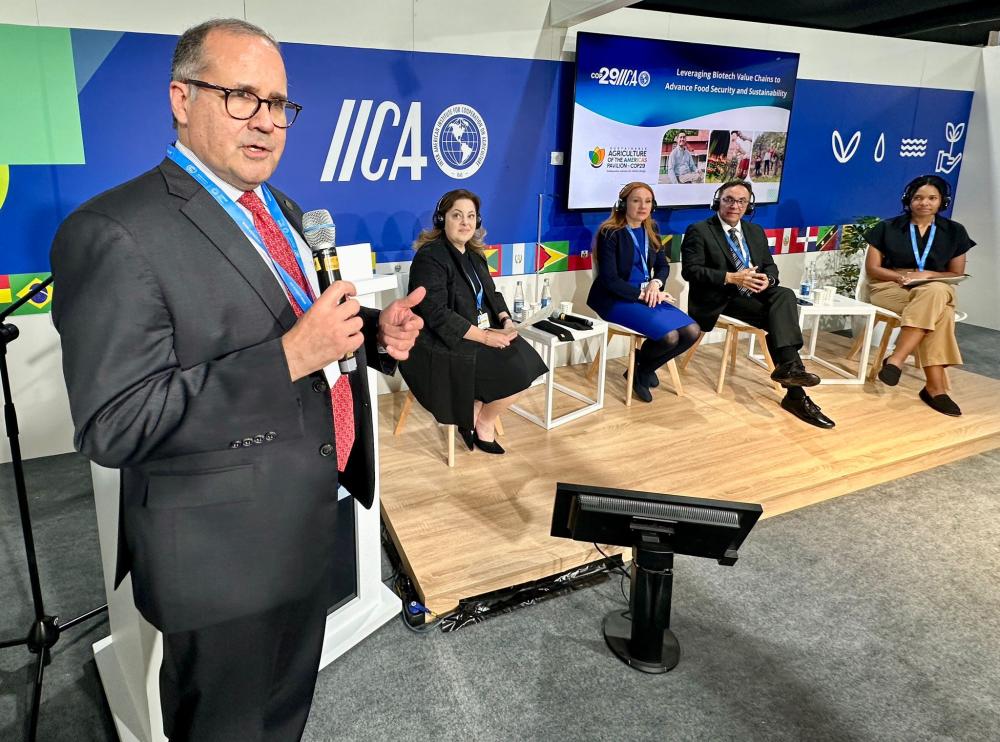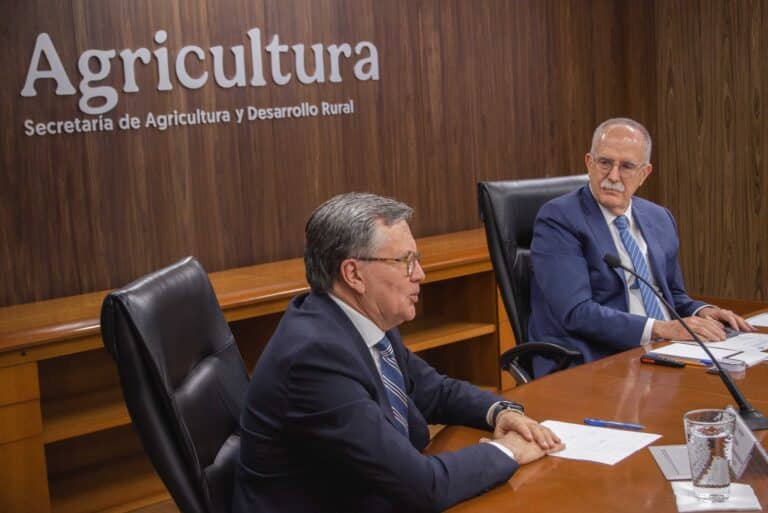Details of the latest advances were presented to participants in the United Nations Climate Change Conference (COP 29) at an event held in the pavilion that the Inter-American Institute for Cooperation on Agriculture (IICA) installed in Baku, Azerbaijan, with its private and public sector partners.

Baku, Azerbaijan, 22 November 2024 (IICA). Biotechnology innovations are revolutionizing the way in which the Americas are tackling the twofold challenge of producing food for the world and preserving natural resources.
Details of the latest advances were presented to participants in the United Nations Climate Change Conference (COP 29) at an event held in the pavilion that the Inter-American Institute for Cooperation on Agriculture (IICA) installed in Baku, Azerbaijan, with its private and public sector partners.
The discussion was led by the Biotechnology Innovation Organization (BIO), the most important advocacy entity in the world representing the biotechnology industry, founded in 1993 in the United States.
The other participants were Eduardo Leao, President and CEO at Croplife Brasil; Tamara Muruetagoiena, Vice President of Sustainability at the International Fresh Produce Association; and Jamaica Gayle, Senior Director of Sustainability and Environmental Affairs at the Corn Refiners Association.
Rose Barbuto, Senior Policy Advisor at the Farm Journal Foundation, moderated the discussion. Lloyd Day, Deputy Director General of IICA, delivered the opening remarks.
Promoting food security
The event, at the world’s largest environmental forum, showed how biotechnology is creating synergies along value chains to promote food security.
Through improved raw materials, the use of fewer inputs and the utilization of resistant seeds, biotechnological solutions are showing their potential, as demonstrated by the results presented at the Home of Sustainable Agriculture of the Americas, the name given to the IICA pavilion when it was installed for the first time at the climate forum two years ago, at COP27 in Egypt.
However, the event also showed that progress is not being made as fast as it could be with more appropriate public policies designed to spur research and development and the distribution of technologies.
Barbuto praised the role played by IICA and the BIO in creating the conditions for the event to take place at the conference, where countries discuss the future of the modes of production and consumption.
Eduardo Leao explained that Croplife Brasil is part of a global organization whose mission is to support innovation in agriculture. It represents technological organizations, with the objective of seeking synergies that make it possible, for example, to reduce the use of agrochemicals.
“We can no longer have a single solution to complex situations. We need a variety of solutions that take into account the different productive, social and environmental circumstances in regions and countries,” Leao remarked.
The executive informed his audience that biotechnology is used in at least 97% of Brazil’s most important crops, and as much as 99% in the case of cotton.
“The economic benefits of biotechnology have been enormous. In recent years, the value of agricultural production has increased by an estimated USD 30 billion. And when you consider the environmental impacts, there is also great news: the emission of 70 million tons of carbon dioxide equivalent has been avoided in the last 25 years. Without biotechnology, we would need to use 21 million more hectares of land to produce what we produce today. And we have also reduced the use of fuel, water consumption, and the application of pesticides,” he pointed out.
Leao explained that Croplife Brasil has a close relationship with the Brazilian Agricultural Research Corporation (EMBRAPA), which has enabled it to develop new biotechnological products with great success.
Jamaica Gayle said the US corn industry has seen tremendous growth in recent years and has developed multiple uses. “Until a few years ago, corn was only for human food and animal consumption. Today we are focused on the bioeconomy and have developed many materials, for example, antibiotics and cosmetics,” she said.
“Biotechnology and innovation allow us to produce much more with much less. Farmers have made great progress,” she remarked.
Tamara Muruetagoiena, Vice President of Sustainability at the International Fresh Produce Association, explained that her industry is part of the solution to climate change. “By producing and consuming vegetables, we reduce our environmental footprint. And we also produce flowers, which make people happy. This is simple but powerful,” she concluded.
More information:
Institutional Communication Division.
comunicacion.institucional@iica.int











